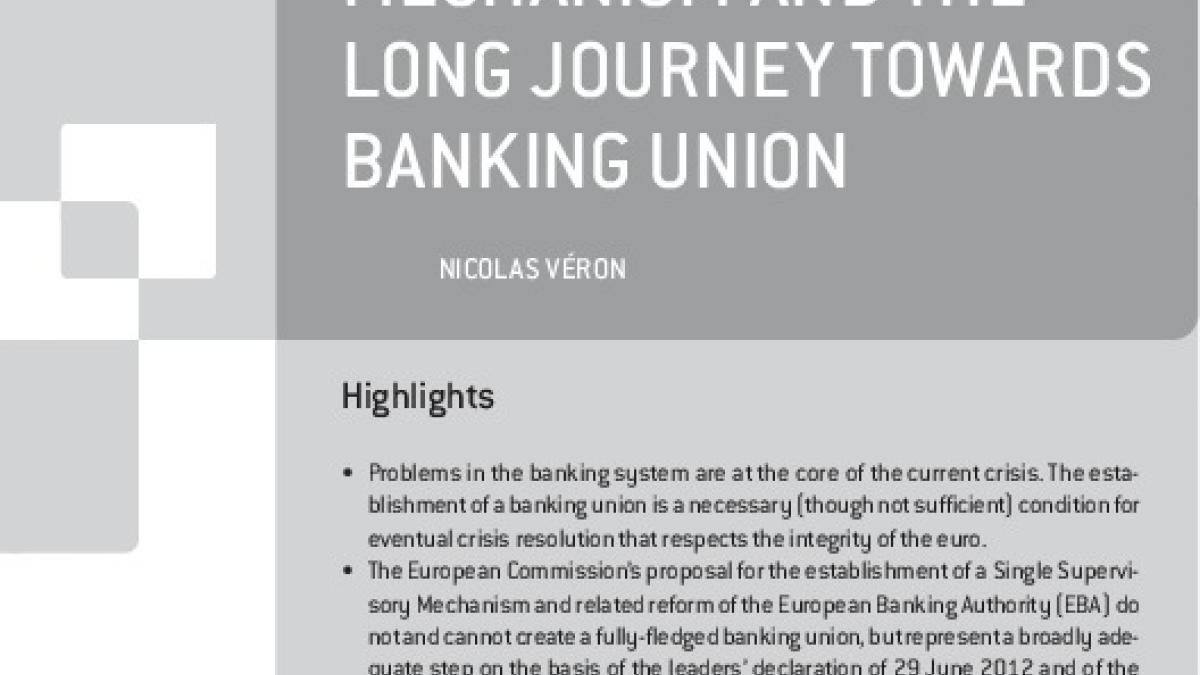Europe's single supervisory mechanism and the long journey towards banking union
This Policy Contribution was prepared as a briefing paper for the European Parliament Economic and Monetary Affairs Committee’s Monetary Dialogue: Pro

Problems in the banking system are at the core of the current crisis. The establishment of a banking union is a necessary (though not sufficient) condition for eventual crisis resolution that respects the integrity of the euro.
The European Commission’s proposal for the establishment of a Single Supervisory Mechanism and related reform of the European Banking Authority (EBA) do not and cannot create a fully-fledged banking union, but represent a broadly adequate step on the basis of the leaders’ declaration of 29 June 2012 and of the decision to use Article 127(6) of the treaty as legal basis.
The proposal rightly endows the European Central Bank (ECB) with broad authority over banks within the supervisory mechanism’s geographical perimeter; however, the status of non-euro area member states willing to participate in this mechanism, and the governance and decision-making processes of the ECB in this respect, call for further elaboration. Further adjustments are also desirable in the proposed reform of the EBA, even though they must probably retain a stopgap character pending the more substantial review planned in 2014.
This Policy Contribution was prepared as a briefing paper for the European Parliament Economic and Monetary Affairs Committee’s Monetary Dialogue.



